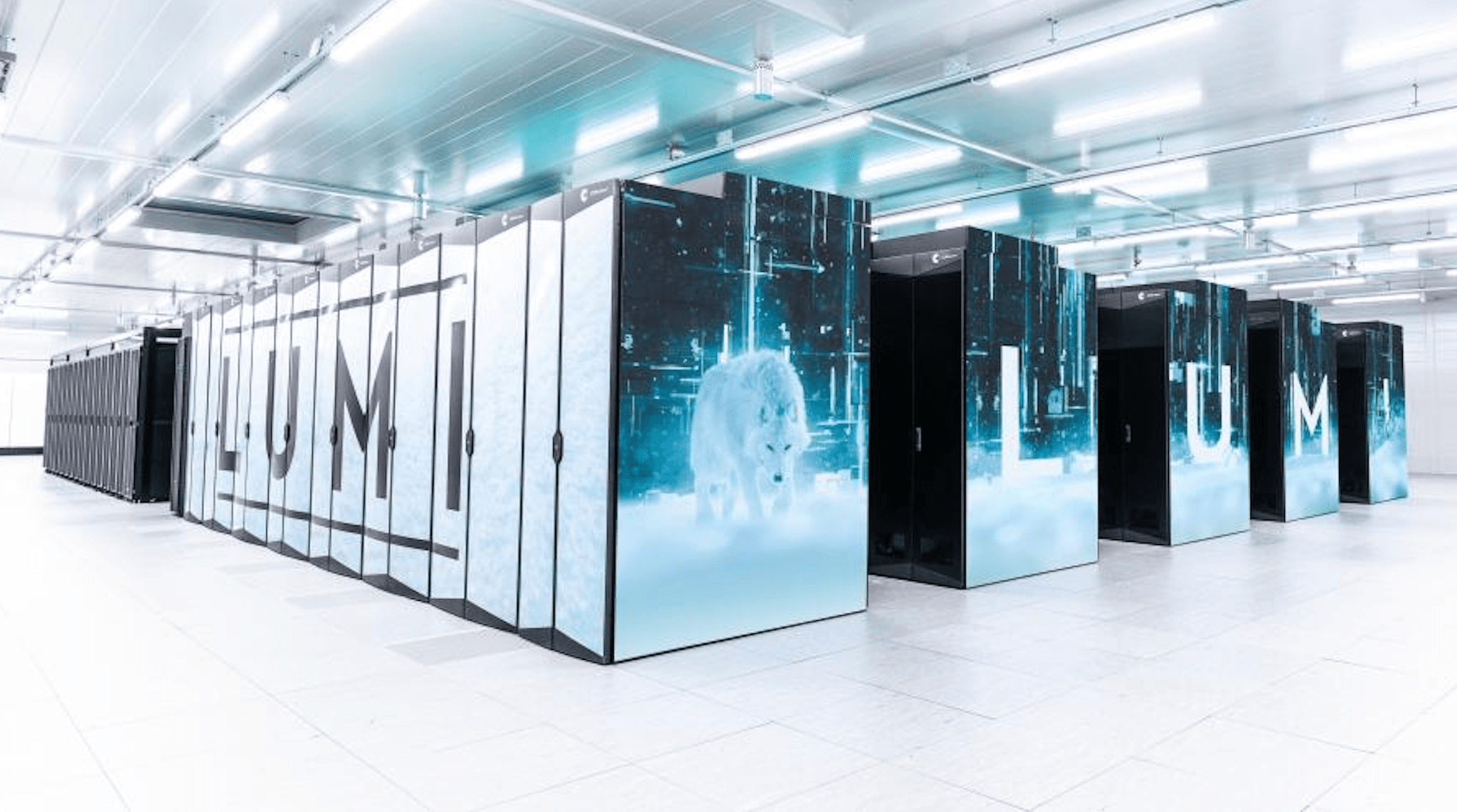AI expert on €1.5 billion for European AI factories: 'Not enough to compete with US'
The European Commission is investing in AI factories. But if we want to compete with the US, more is needed.
Published on December 18, 2024

Our DATA+ expert and Editor-in-Chief, Elcke Vels, explores AI, cyber security, and Dutch innovation. Her "What if..." column imagines bold scenarios beyond the norm.
Seven large AI factories spread across Europe: they should guarantee our continent a leading position in artificial intelligence. The European Commission has released €1.5 billion to realize this ambitious project. But if we want to compete with countries like the U.S., more is needed. “Powerful cloud computing and significantly more funding from business,” for example. IO+ interviewed AI expert Maarten Sukel, PhD, from the University of Amsterdam. He is the author of the book The AI Revolution and the founder of the company The AI Factory.
The AI revolution can be seen as a modern counterpart to the industrial revolution. Steam power in the 18th century was a systems technology that radically transformed society. AI has similar potential.
And so the continents are vying for a leadership position. The seven AI factories being built thanks to the €1.5 billion investment from the EU are a step toward making Europe competitive on the world stage. They should provide access to the massive computing power that startups, industry, and researchers need to develop their AI models and systems, such as European large language models or specialized vertical AI models targeting specific sectors or domains.
€1.5 billion for AI: nice step, but not enough
A nice step forward. However, much more is needed in Europe. Although the EU funding makes for a nice headline, it is important to put it in perspective, the researcher believes. “€1.5 billion sounds like a huge amount at first glance, but if you divide it over seven projects it's not too bad in proportion.” Microsoft recently invested €4 billion in French cloud and AI projects; considerably more than the European Union invests in this case, despite the EU being a collaboration of 27 member states.
It is not at all comparable to the investments we see in the US. “There, investment comes mainly from industry, whereas in Europe most of the money for AI development comes from government. Historically, public investments have been far from successful.” Between 2018 and 2020, AI investment in the EU increased. Yet the gap between the US and EU more than doubled over the same period (€10.7 billion EU, vs. €21.1 billion US), in both the public and private sectors.
Standing on its own two feet
Funding is essential, Sukel explains, because it is needed to scale up three crucial aspects of AI in Europe: computing power, access to data, and the development of advanced algorithms. Computing power - crucial, since AI models require intensive processing power - is now being worked on with the series of AI factories. Data can be partly taken from the Internet. Sukel explains that the biggest problem in Europe is the limited availability of powerful cloud computing infrastructure. Cloud computing refers to storing and processing data on servers accessible over the Internet, rather than on local computers or physical servers. “The big players, such as AWS, Google, and Microsoft, dominate the field, while European initiatives remain small-scale. This leaves us dependent on American companies.”
Interestingly, however, the development of increasingly large language models seems to be stagnating. Instead, the focus is shifting to smaller, open models accessible to all. “This trend offers opportunities for Europe to stand on its own two feet,” said the scientist.
Investing in education
That sounds hopeful. But there are other challenges facing Europe. One is the need to invest heavily in AI education. Without enough scientists, engineers, and experts who understand and can apply this technology, even the most advanced computing power will remain untapped. “Europe has excellent researchers, but many of them are quickly snatched away by U.S. tech companies. As a result, Europe lacks companies that know how to turn this knowledge into successful business models.”
Privacy obstacles
Another well-known obstacle is strict laws and regulations, such as the GDPR, or the new AI Act: typically European values that slow down innovation, Sukel said. “For applications such as online advertising, such regulations are well justified, but in sectors such as healthcare, where AI can save lives, more flexibility is needed. It is important to strike the balance: ensure privacy, but at the same time create space for data-intensive innovations.”
By making datasets available, more companies and agencies can contribute to developing AI solutions. Take, for example, Kaggle: a platform where users can download datasets and participate in competitions to develop the best algorithm. This platform often focuses on commercial applications such as efficiency in purchasing or advertising. But this same concept can also be applied to societal challenges. From such competitions, in turn, new talent comes rolling in to work at AI companies. “It would be good to have a European-focused alternative."
